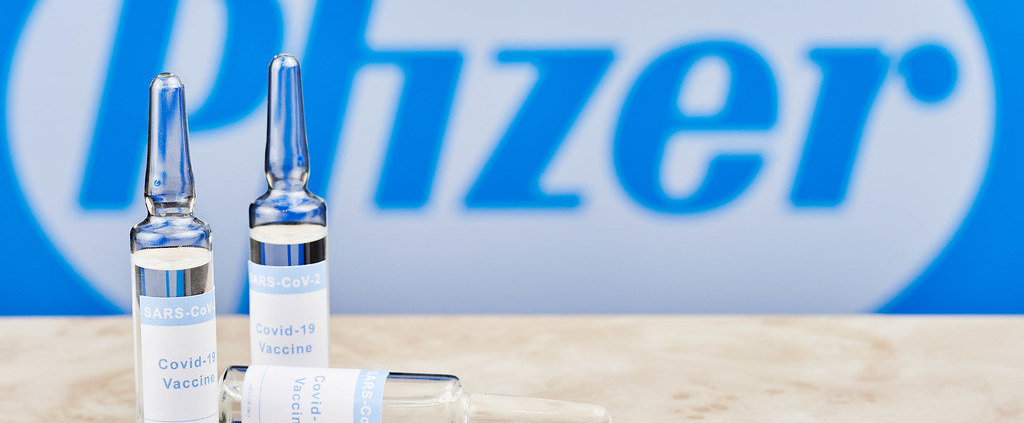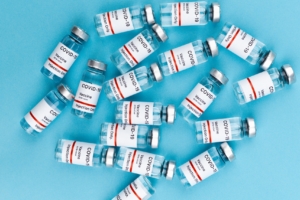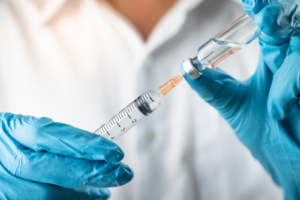Waiving Goodbye to Patents?
Here Is What You Need to Know
As COVID-19 vaccines are rolled out across the world, pharmaceutical companies and their intellectual property are being thrust into the political spotlight as the media, activists, and policymakers raise questions around distribution, access, and equity. Even as citizens expect their country to secure adequate access to vaccine supplies, global health activists are demanding free and equitable distribution of limited vaccine production to countries around the world regardless of wealth.
This debate garnered new attention in the U.S. last month when over 400 advocacy organizations — many of which have no ties to global health — called on President Biden to support developing countries’ push for the World Trade Organization (WTO) to approve a waiver to intellectual property rules they claim wrongly prevent countries from helping to increase the world’s supply of COVID-19 vaccines. The United States, which under the Trump Administration opposed the waiver, is now facing a growing number of international and domestic calls to support it, including from prominent Congressional Democrats like Senators Bernie Sanders (I-VT) and Elizabeth Warren (D-MA).
While this may seem like an arcane debate over trade rules amidst the urgency of a global pandemic, there is far more at stake for the pharmaceutical industry and its ability to develop future health technologies. As this debate unfolds, here’s what public affairs professionals need to know about how we got here and where the debate may go next.
Subscribe to Receive Insights
"*" indicates required fields
Intellectual Property Debates Went Global as Covid-19 Spread
Prior to the COVID-19 pandemic, activists were driving a debate around intellectual property (IP) provisions and access to medicines in the developing world. Prominent public health-focused organizations such as Unitaid and Médecins Sans Frontières had supported local campaigns for years encouraging developing countries to use compulsory licensing, a practice in which “a government allows someone else to produce a patented product or process without the consent of the patent owner.” Many in the pharmaceutical industry expressed concern that compulsory licensing would lead to a decline in medical innovation and research, and trade rules often made it more difficult for countries to enact such licenses.
As the pandemic spread across the globe, access to medicine activists – who were separated by regions and often focused on particular diseases – coalesced into a global campaign for a COVID-19 People’s Vaccine – “available to all, everywhere, free of charge.” According to supporters of the People’s Vaccine, the pharmaceutical industry’s “business as usual approach is unacceptable and will be ineffective” in ensuring global equitable access to COVID-19 treatments and vaccines. This line of argument – that patent-oriented R&D and “relentless focus on pharmaceutical profits” lead to “market failures” – has been prevalent among anti-patent groups since well before the pandemic.
The pharmaceutical industry – which opposes a People’s Vaccine as impractical – has promised equitable distribution of the vaccine and contributed financially and materially to the World Health Organization’s (WHO) mechanism aimed at increasing distribution of vaccines to low- and middle- income countries. However, these contributions have not been enough for supporters of the People’s Vaccine, who have joined South Africa and India, among other countries, in a push for a WTO waiver on COVID-19 related intellectual property.
The Waiver Fight Is About Patents Not Pandemics
The waiver, originally proposed by South Africa and India, has now gained the support of over 55 countries concerned about access to vaccines that were developed by pharmaceutical companies with the support of rich countries. Pointing to the slow roll out of vaccines in developed countries, supporters of a waiver have argued for sharing the intellectual property and know-how of COVID-19 vaccines to increase the global supply. Opponents of the waiver, including at least four Republican senators, raise concerns that the waiver would impact long term innovation and “stop the development of new vaccines or boosters to address variants in the virus.” They also argue the waiver “wouldn’t increase the supply of vaccines because of the tremendous time and resources needed to build new manufacturing plants and acquire the know-how to produce these complex medicines.”
Getting a waiver for COVID-19 treatments would bring supporters of the People’s Vaccine closer to achieving their long-held goal of removing IP protections for drugs on a range of diseases, such as HIV/AIDS, cancer, and tuberculosis, among others. These intentions were made clear in recent comments from Ellen ‘t Hoen, director of access to medicine non-profit Medicine Law & Policy, who wrote, “COVID-19 is now in the spotlight. But we should not lose sight of the need to work to increase access to other new essential medicines. Including those to treat diabetes, cancer and cardiovascular diseases. After COVID, I believe cancer will prove to be the next big challenge … to have impact. There is increasing demand and treatments are improving. Nonetheless they are priced well beyond the ability to pay for most people and communities in the developing world.”
A Global Campaign Brings Pressure at Home
Biden, whose campaign team considered seizing patents to increase vaccine production, has pledged to donate $4 billion to the WHO mechanism aimed at increasing distribution of vaccines to low- and middle- income countries. This step soon may lead to others, as Biden’s pick for U.S. Trade Representative, Katherine Tai, has committed to examining the proposed WTO waiver “thoroughly to determine its efficacy in enhancing our global health security and saving lives.” Biden also lifted the U.S. opposition to the nomination of the new WTO Director-General, who has advocated for a “third way” approach to a waiver “based on voluntary licensing of patented vaccines to generic manufacturers in the global south.”
Access to medicine activists, however, are not only focusing on the global debate. They are also focused here at home, calling for reform of the U.S. Patent and Trademark Office (USPTO). Using data showing the pandemic has “disproportionately harmed Black and brown people,” they claim “Structural racism has a long history in our patent system” and want President Biden to select a USPTO director who will “make it more difficult to extend the life of a patent or make it easier for generic manufacturers or others acting in the public interest to challenge unjust patents.” Amidst the pandemic and a continuing public debate around racial equity and drug pricing, these calls add heightened pressure to pharmaceutical companies that rely on the patent system to protect their innovations and bring life-saving treatments to the people who need them.
Pandemic as Precedent
Even when the pandemic subsides, the global coalition of health activists targeting the patent system at home and abroad will remain. They have made clear they believe improving the cost of and access to medicines across a range of diseases and ailments requires upending the system of trade rules and intellectual property protections on which pharmaceutical companies have relied for many years. Meanwhile, governments in the U.S. and Europe have shown an increased willingness to tighten their control over access to medicines when it suits their short-term interests. These trends make for an even more challenging environment for public affairs professionals advising the pharmaceutical industry. To navigate these challenges successfully, it will be crucial to understand and anticipate the messages, strategies, and tactics of the activists and policymakers engaging in this debate to find allies and overcome opposition.



